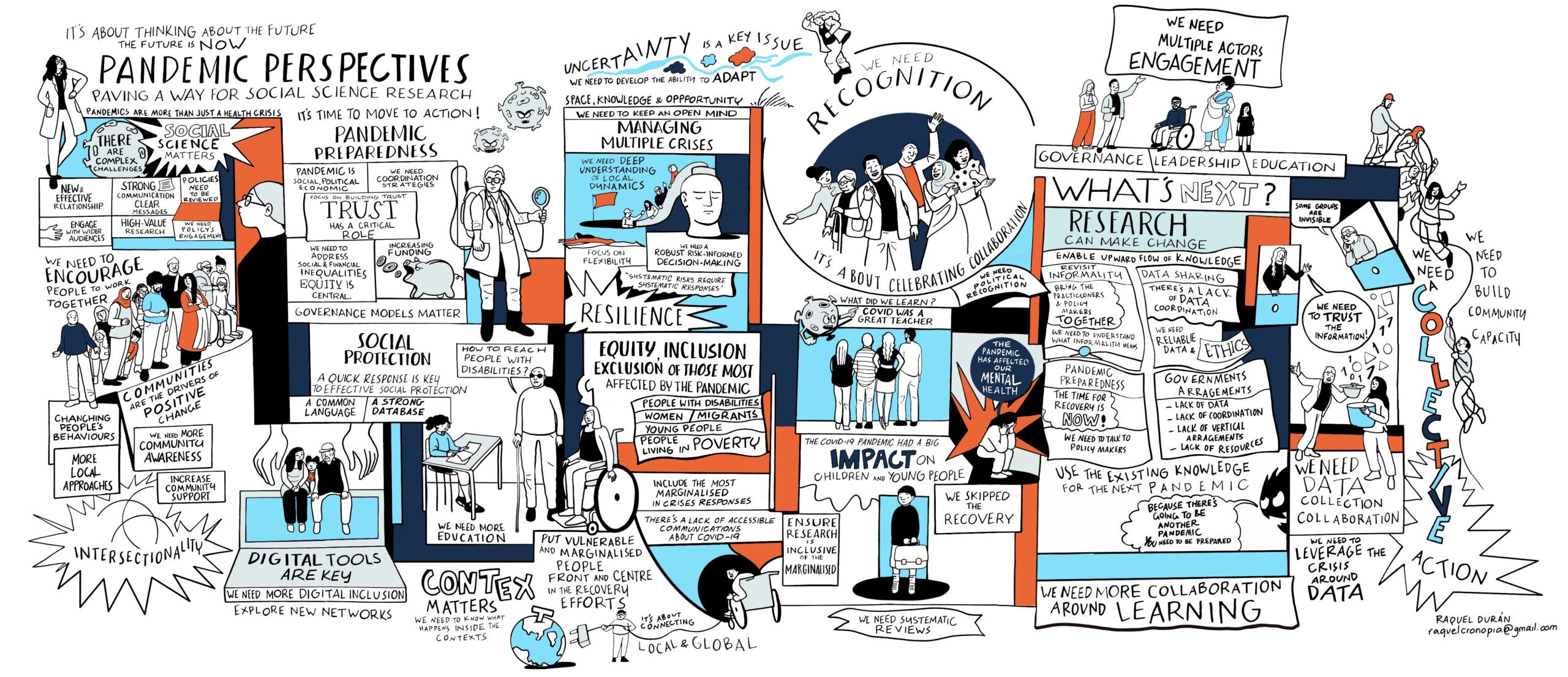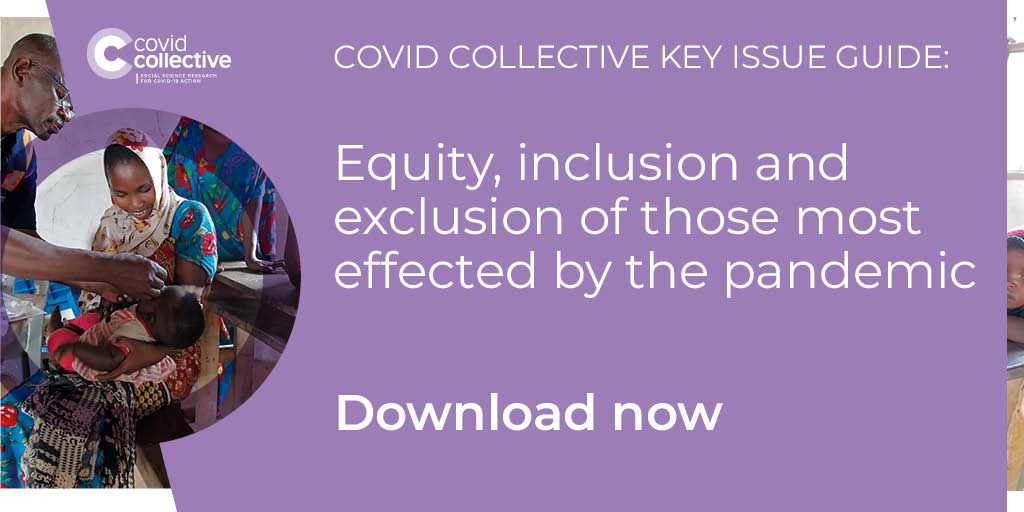With the ongoing war in the Ukraine, extreme weather events such as the flash flooding in Turkey or Cyclone Freddy in Malawi, and a hunger crisis in East Africa, Covid-19 is no longer the most pressing global development challenge we face. In fact, we have learned in the Covid Collective that for many around the world, crises – of which the pandemic has been only one – are central to their life experience. Nevertheless, the implications and after shocks of the global pandemic run deep and leave a lasting legacy for those most affected by Covid-19.
For many, the pandemic deepened foundational cracks in already creaking systems and societies. However, it is a legacy that we can and should learn from to prepare for future pandemics and crises, and if we are serious about addressing current structural inequalities.
In mid-March 2023, we brought partners of the Covid Collective together for a two-day workshop in London, UK. The Covid Collective began during the first year of the pandemic and has been producing rapid, social science research into the impact of Covid-19, and the measures taken to mitigate its effects, for over two and half years. With its second phase coming to an end in June, we wanted to celebrate the work carried out by the Collective, as well as an opportunity to share research, learning, and most excitingly of all, to discuss future research agendas.
The Collective has grown quickly, and now includes 35 partners, working across 65 projects in 39 countries. It has provided real-time evidence, data, and analysis; and generated compelling, research-based arguments and options for doing things differently in a recovery period and beyond. The research portfolio of the Covid Collective has been extremely varied in terms of topic, and geographical focus. You can find out more about the projects and research of the Covid Collective here.
We structured the workshop around four emerging themes, which seemed to be the most common threads running through the tapestry that is the Covid Collective.
Social protection and different forms of social assistance
In response to the Covid-19 pandemic, almost all countries implemented some form of social protection, with social assistance in particular emerging at the forefront as a crisis response tool to help contain the socio-economic consequences. Yet experiences differ considerably across contexts, with some groups having received attention while others remained excluded or found it difficult to access benefits. The social protection adjustments and innovations adopted during the Covid-19 pandemic raise questions and offer insights for longer-term policy.
Managing multiple, intersecting crises
The world is facing multiple, overlapping crises. Countries will need to build resilience to adapt to and recover from compounding shocks, especially in developing and fragile states. Vulnerable people and marginalised groups should be put front and centre in responses. Social cohesion and trust are key to building resilient communities, and the global infrastructure will need to be better able to deal with an increasingly uncertain world.
Equity, inclusion and exclusion of those most effected by the pandemic
The Covid-19 pandemic exposed and worsened already existing inequalities, increased extreme poverty and food insecurity, led to human rights violations, and negatively affected progress towards the achievement of the Sustainable Development Goals. Marginalised and socially excluded groups bore the brunt of the crisis and as a result, were more likely to suffer from adverse health, socioeconomic, and political impacts of Covid-19 pandemic. We must include the most marginalised in future crises response, including ensuring that research is inclusive, and supporting grassroots resilience.
Pandemic preparedness
Much has been learned from the Covid-19 pandemic around how the world can limit pandemic risks and respond more effectively. This will require ‘whole of government’ and ‘whole of society’ approaches which consider the intersecting precarities that affect people’s lives. It is in the mutual interest of all nations that preparedness is equitable to prevent some parts of the world from being left ill-equipped to respond to future crises.
Alongside the four themes listed above, other topics – most notably: informality, data knowledge and information, and governance during a poly-crisis – emerged. Partners shared their experiences of carrying out research during the pandemic and the continued and transformative effect of the pandemic on the communities that they work with.

As you can see from the brilliant illustration above, drawn by Raquel Duran during the event, the discussions were complex and wide ranging; they were both reflective in looking back at the impact of the pandemic and forward-looking in identifying emerging issues in a post-pandemic world.
The Covid Collective has been something of an experiment in how to do rapid, social science research in response to an unprecedented global crisis. Given the multiple crises we now see the world facing, this situation sadly may become more common place. One of the defining features of the Covid Collective has been the urgency and commitment from partners to foster collaborative and comparative learning across different countries and on different emerging issues. The knowledge, insight, and ways of working in this approach to research partnership and collaboration can, and will, be key in how we prepare for future pandemics and should be central to any future development agenda.



